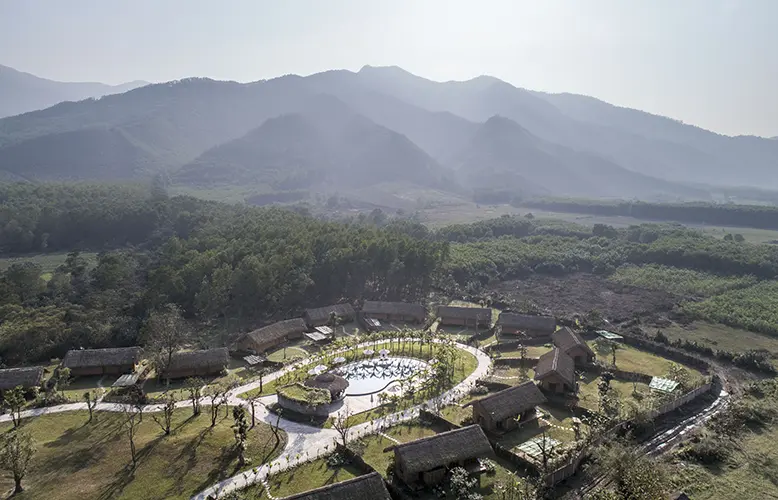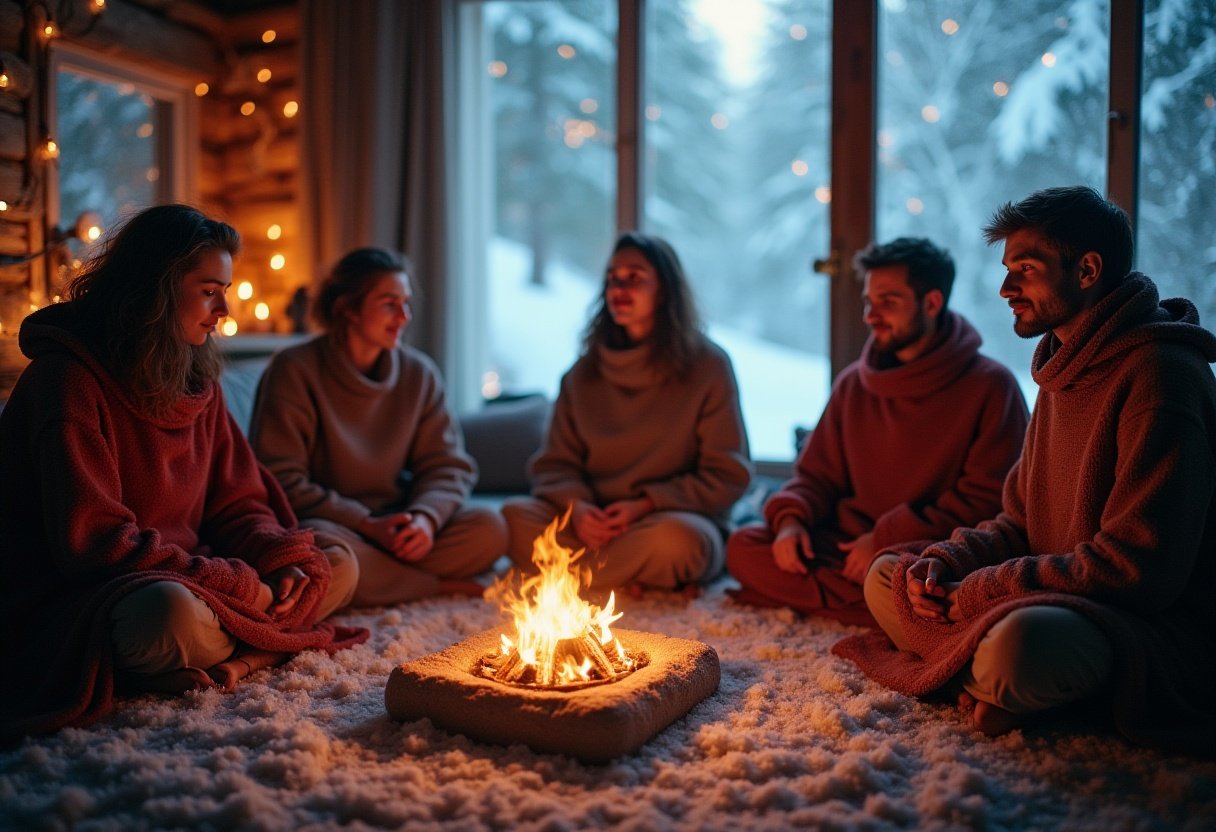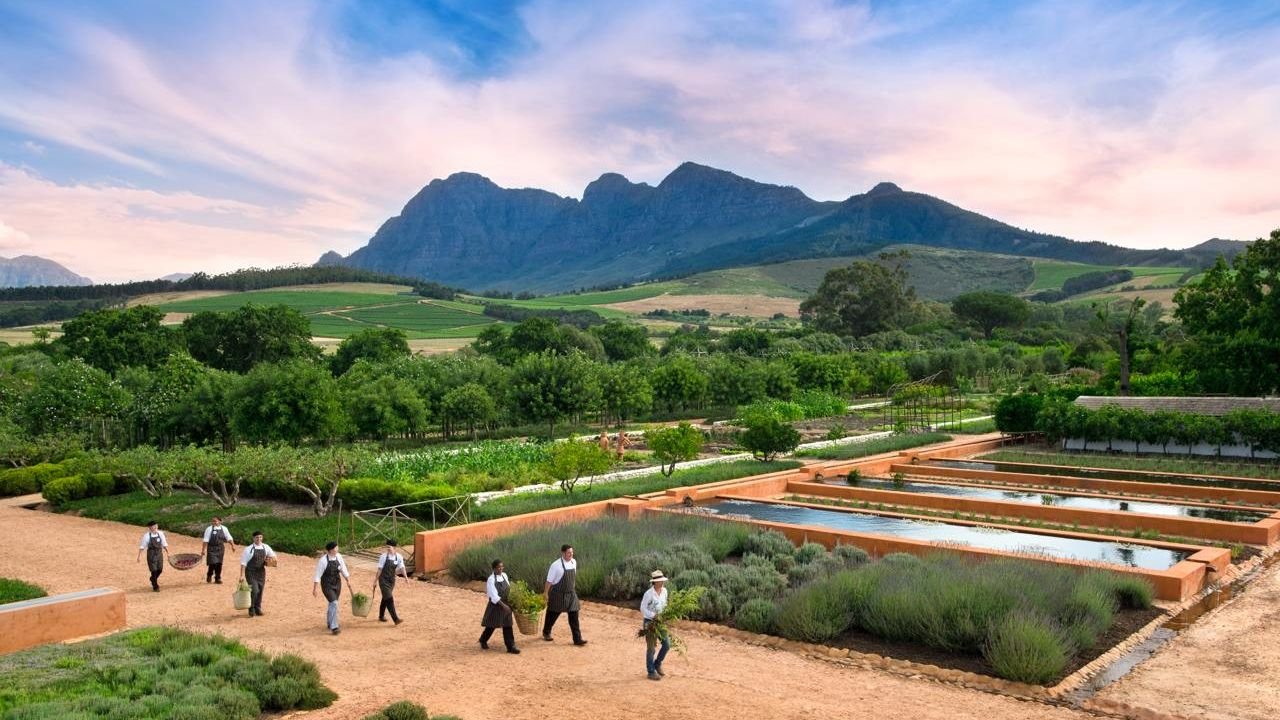Wellness Travel
Alba Wellness Valley recognized in Travel + Leisure Luxury Awards

Alba Wellness Valley by Fusion was named one of Vietnam’s “Best Upcountry Hotels” at the Travel + Leisure Luxury Awards Asia Pacific 2025, earning the prestigious recognition for the third consecutive year.
Nestled in the tranquil foothills of the Truong Son Mountains, just 30km from Hue’s city center, Alba Wellness Valley by Fusion is a wellness sanctuary built around a natural hot spring that is rich with healing and therapeutic properties. With its signature eight-step Japanese onsen, lush 50-hectare grounds and daily schedules of wellness rituals, the resort continues to define luxury through balance and authenticity.
“This honor reflects the unwavering dedication of our team to creating experiences that nurture the body, mind and spirit,” said General Manager Eugene Hendriks. “To be acknowledged by such a respected global travel authority for three years in a row is truly humbling.”
The award was presented at a ceremony in Bangkok on June 18.
Beyond its award-winning onsen and spa services, the resort offers yoga, tai chi, walking meditation and seasonal wellness retreats guided by experts from around the world. All-inclusive wellness packages include Fusion’s signature “breakfast anytime, anywhere,” and holistic treatments that incorporate local herbs and traditions.
Resort guests enjoy farm-to-table cuisine, featuring organic vegetables, herbs, cage-free eggs and poultry sourced directly from the resort’s own certified farm. Cooking classes at the farm offer guests hands-on experiences in local gastronomy.
Sustainability is at the heart of Alba Wellness Valley by Fusion’s philosophy. From sourcing local artisanal products such as essential oils, ceramic crafts and Hue’s famed ginger candies, to replanting fallen trees and recycling them into useful items like coasters and coffee trays, every detail is intentional. The resort holds a Level 1 Green Destination and Good Travel Seal, an international recognition of its eco-conscious practices.
In a fast-evolving wellness landscape, the resort has also continued to pioneer innovation. The resort spans 50 hectares of preserved nature, with the renowned Thanh Tan natural hot spring flowing through the heart of the property. Guests are invited to detox and reset through the resort’s signature eight-step onsen journey, inspired by traditional Japanese bathing rituals. To further deepen personal transformation, Alba offers a wide range of evolving movement therapies, mindfulness activities and cultural storytelling sessions such as “A Walk in the Park” – where guests reconnect with nature through folk tales and botanical exploration.
Alba Wellness Valley by Fusion’s recognition reinforces its position as a leading wellness destination in Asia, one that champions sustainability, connection to nature and restorative travel.
Wellness Travel
Sabah’s Hidden Wellness Treasures Await on Eco-Tourism Packages Now Available – Unlock Secret Deals Before They’re Gone!

Tuesday, July 22, 2025
In an effort to align with evolving global tourism trends, community-based tourism operators in Sabah have been encouraged to enhance their offerings by incorporating wellness elements into their tourism products. This call to action was made by Datuk Joniston Bangkuai, the Assistant Minister for Tourism, Culture, and Environment in Sabah, who emphasized the importance of integrating wellness practices into tourism packages to stay competitive and meet the rising demand for eco-wellness experiences. As wellness tourism continues to grow in popularity worldwide, Bangkuai believes that Sabah’s rich natural resources, clean environment, and cultural heritage provide the perfect foundation for promoting wellness-focused tourism.
Sabah’s Natural and Cultural Assets: A Strong Foundation for Wellness Tourism
Sabah, renowned for its stunning landscapes, pristine air, and vibrant culture, is uniquely positioned to tap into the growing wellness tourism market. The state’s diverse natural beauty and tranquil environment provide the ideal backdrop for eco-wellness tourism, which focuses on health, mindfulness, and rejuvenation. Bangkuai’s call for integrating wellness elements into community-based tourism products highlights the potential for rural areas to offer authentic and enriching experiences for visitors seeking to relax, recharge, and reconnect with nature.
The concept of wellness tourism has evolved significantly in recent years. What was once considered a niche sector has now become a mainstream trend. Today’s travelers are not just looking for sightseeing opportunities; they are increasingly drawn to destinations that promote mental, physical, and emotional well-being. This shift in traveler preferences presents an exciting opportunity for Sabah’s tourism operators, especially those in rural communities, to enhance their offerings by integrating wellness practices into their tourism packages.
Encouraging Rural Communities to Think Beyond Sightseeing
During the Program Jejak Kanser held in Pekan Kiulu on Tuesday, July 22, 2025, Bangkuai urged rural tourism operators to go beyond traditional sightseeing tours by incorporating wellness elements into their packages. Simple additions, such as offering mindful activities, traditional healing practices, and healthy local meals, could significantly enrich the visitor experience. These changes, while seemingly small, can have a meaningful impact on rural tourism, creating a more holistic and immersive experience for tourists.
Mindfulness activities, such as meditation sessions, yoga, or nature walks, could be integrated into existing tourism offerings to promote relaxation and stress reduction. Traditional healing practices, which are often deeply rooted in Sabah’s indigenous cultures, could also play a key role in providing visitors with unique wellness experiences. Additionally, the promotion of healthy local cuisine, made with fresh, natural ingredients, would allow visitors to experience the state’s rich culinary heritage while benefiting from its health-conscious offerings.
Wellness Tourism: A Growing Global Trend
Bangkuai’s emphasis on wellness tourism is in response to the growing global trend where travelers increasingly seek destinations that offer a combination of relaxation, health, and wellness. The rise of wellness tourism has been driven by a broader shift in consumer behavior, with people becoming more health-conscious and seeking out experiences that support their mental and physical well-being. For many travelers, the idea of a vacation has evolved beyond leisure and entertainment; it now encompasses the pursuit of health, tranquility, and personal growth.
The tourism sector in Sabah has an opportunity to capitalize on this global trend by offering wellness-focused experiences that cater to a wide range of tourists, from those seeking relaxation to those looking to engage in more active forms of wellness, such as hiking, yoga retreats, or nature-based therapy. Wellness tourism is no longer a niche market but a broad and diverse sector that can attract a wide range of travelers, from millennials seeking wellness getaways to retirees looking for restorative vacations.
Sabah’s Commitment to Sustainable Wellness Tourism
Bangkuai pointed to the success of the Sustainable Wholistic Wellness International Conference and Expo, which was held in Sabah last month, as a strong signal that the state is ready to take a leadership role in wellness tourism. The conference brought together experts, practitioners, and stakeholders from around the world to discuss sustainable wellness practices and how they can be integrated into tourism. This event underscored Sabah’s growing commitment to promoting wellness as a key aspect of its tourism offerings.
The state’s focus on sustainability aligns perfectly with the principles of wellness tourism, which emphasizes the importance of environmentally friendly practices and the integration of nature into the visitor experience. Sabah’s rural communities, many of which are already engaged in sustainable living practices, are particularly well-positioned to offer genuine wellness experiences that are both eco-friendly and rooted in local traditions.
Kiulu: A Model for Healthy Rural Communities
As part of the broader Sabah Maju Jaya agenda, which focuses on the development of tourism, agriculture, and manufacturing, Kiulu has been identified as a potential model for healthy and thriving rural communities. The agenda aims to transform Kiulu into a destination that showcases the benefits of integrating wellness into rural tourism. Bangkuai emphasized that by incorporating wellness practices into the region’s tourism offerings, Kiulu could set an example for other rural communities in Sabah and beyond.
Kiulu, known for its natural beauty and close-knit community, is ideally suited to promote wellness tourism. The area’s lush forests, clear rivers, and tranquil environment provide the perfect backdrop for nature-based therapy sessions and outdoor wellness activities. By offering regular health screenings, nature-based therapies, and awareness programs, Kiulu could not only attract wellness-focused tourists but also promote healthy living among its residents. This would have a positive impact on both the local community’s well-being and the region’s tourism industry.
Establishing a Wellness Centre to Support the Vision
Bangkuai suggested that the establishment of a wellness center in Kiulu could further support the vision of transforming the area into a healthy and vibrant rural community. A wellness center could serve as a hub for various health and wellness activities, such as yoga classes, meditation sessions, and traditional healing practices. It could also provide educational programs on sustainable living and healthy lifestyle choices, benefiting both locals and tourists.
By integrating wellness elements into tourism, Kiulu could not only improve the quality of life for its residents but also create new economic opportunities. A wellness center would attract both local and international visitors who are seeking restorative and rejuvenating experiences. This could lead to job creation, the development of new businesses, and increased revenue for the local economy.
The Economic and Social Benefits of Wellness Tourism
Integrating wellness into tourism offers significant economic and social benefits for both visitors and locals. For visitors, the opportunity to experience wellness-focused activities in a peaceful, nature-rich environment provides a unique and transformative experience that goes beyond traditional sightseeing. The ability to reconnect with nature, relax, and rejuvenate can lead to a deeper connection with the destination and a more memorable travel experience.
For local communities, the growth of wellness tourism presents new economic opportunities. By offering wellness-based tourism packages, rural areas like Kiulu can attract a new type of traveler, one that is interested in more meaningful, health-focused experiences. This can help diversify the local economy, create new jobs, and provide sustainable income for local businesses. Moreover, the integration of wellness into tourism can also improve the overall quality of life in rural communities by promoting healthy living and fostering a culture of well-being.
A Vision for the Future of Sabah’s Tourism Industry
The call to integrate wellness elements into community-based tourism in Sabah reflects a forward-thinking approach to the region’s tourism development. By capitalizing on its natural beauty, clean environment, and cultural richness, Sabah can position itself as a leader in the growing wellness tourism market. The incorporation of wellness practices, such as mindful activities, traditional healing, and healthy local meals, will not only enhance the tourism experience but also contribute to the long-term economic and social well-being of the region.
With its focus on sustainability, community health, and the promotion of wellness tourism, Sabah has the opportunity to attract a new generation of travelers who are seeking more meaningful, rejuvenating experiences. By embracing this shift in global tourism trends, Sabah can ensure that its tourism industry remains competitive and continues to thrive in the years to come.
Tags: Community-based tourism, cultural tourism Sabah, eco-wellness, healthy local meals, Kiulu wellness, nature-based therapy, rural tourism, Sabah Maju Jaya agenda, Sabah tourism, sustainable tourism, tourism and wellness, tourism development Sabah, Tourism Trends, Traditional Healing, Wellness Center, Wellness Experiences, wellness tourism, wellness tourism in Malaysia
Wellness Travel
Experts Suggest Inclusive Strategy For Growth In Medical And Wellness Tourism

By Chanchal Mukherjee
New Delhi: Experts have suggested certain strategies to usher in transformative growth in medical and wellness tourism in the country including bringing together thought leaders and policymakers across healthcare sector and integrate centuries-old wellness traditions to make India a better destination for medical value travel.
Highlighting the key recommendations and suggestions given during the discussion, Dr Subhash Goyal, chairman of Aviation and Tourism expert committee of the Indian Chamber of Commerce, told ETV Bharat, “There is need for a nationwide ecosystem built on trust, accessibility and quality to support the growing demand for medical and wellness travel and a unified national policy to provide a standardized experience for international patients as India’s medical tourism sector is highly fragmented, with six ministries and multiple sectors involved.’
Rajiv Mehra, General Secretary of Federation of Associations of Indian Tourism & Hospitality (FAITH), said, “The government should come forward and promote health care and wellness tourism in India as well as abroad to grow this sector. Currently, most of the hospitals have their tie ups with outside the countries that’s why health care tourism come to India.”
Experts suggested promotion of Indian traditional healing and wellness measures to create an alternate economy, unified National and State-Level Heal in India Missions, and formation of treatment and wellness tourism clusters.
On health care and wellness tourism, Satinder Pal Singh, tourism expert, told ETV Bharat, “All kinds of tourism help our economy grow. I have noticed patients from our neighbouring countries often visit India for medical tourism because treatment is much cheaper in India than in several other countries.”
He added, “If patients from other nations come to India for treatment then it will definitely help generate employment opportunities and the hotel industry because during treatments of dental or skin ailments, people don’t prefer to get admitted for several days. They visit hospitals for a few hours then return back to their hotel rooms or start visiting tourist places which obviously help grow tourism,” Singh said.
The Federation of Hotel and Restaurant Associations of India (FHRAI), in collaboration with KPMG in India, has launched its flagship report titled “Heal in India: Catalysing Medical and Wellness Tourism for a Healthier Global Future.” The report outlines a transformative national strategy that integrates India’s clinical expertise with its centuries-old wellness traditions, aiming to make the country the world’s most trusted destination for Medical Value Travel (MVT).
Suman Billa, Additional Secretary and Director General, Ministry of Tourism, quoted, “India should create a global movement putting all stakeholders on one platform and building trust. The tourism economy is reaching $3 trillion USD in the coming years and for that, several areas need to be activated. Medical and wellness tourism are strategic pillars to achieve this target. We will have to showcase not only our competence but also our care, compassion, and delivery,” He mentioned
Grish Oberoi, Honorary Treasurer of the Federation of Hotel and Restauration Associations of India (FHRAI) told ETV Bharat, “There were several hospitality and hospitals experts discussing how the sector can be promoted in India.”
Medical Tourists
As per FH&RA report, India already attracts over two million medical tourists every year, with patients coming from more than 75 countries, including Bangladesh, Iraq, the Maldives, Nigeria, and developed nations such as the United States, Canada, and the UK. In 2024 alone, over 463,000 medical visas were issued, showing a strong rebound in the sector post-Covid.
Growth by 2035
FH&RA. in its report stated, India’s Medical Tourism Market is set to surge from USD 18.2 billion in 2025 to USD 58.2 billion by 2035, at a CAGR of 12.3 per cent.
Recommendations
Launch National and State-Level Heal in India Missions with stakeholder coordination, and create treatment-specific and wellness tourism clusters in states like Kerala (Ayurveda), Delhi NCR (advanced care), Maharashtra (multispecialty).
Wellness Travel
Agritourism and Regenerative Farming Are the Latest Wellness Travel Trends

A growing number of travelers are starting to ask the same questions around work and wellness—and finding their answers in the soil. Farm hospitality, a modern evolution of agritourism where beauty, design, and land stewardship merge, suddenly feels more relevant than ever.
“Travelers are looking for meaning,” says Isaac French, founder of Experiential Hospitality. “They want to slow down and experience something real, especially in a screen-saturated and overstimulated world. Regenerative farming represents quite possibly the single biggest setting for that experience and transformation.”
Perhaps that’s why the modern agritourism market is in full bloom, growing 12% yearly and poised to reach $14.5 billion by 2029. A constellation of forces—including piqued curiosity in regenerative agriculture, an evolving definition of well-being, and a hunger for IRL connections—is cultivating the fertile ground for its rise.
“One of the components of wellness is a sense of being grounded. There, nature can help a little,” reflects Karen Roos, owner and visionary behind Babylonstoren in South Africa and The Newt in England, two estates that have set the bar for the new wave. “Our guests love grounding themselves on a working farm.”
A new era of wellness tourism
No doubt it’s the dual promise of freedom and connection that’s driving wellness tourism as it skyrockets towards becoming a $1.35 trillion market by 2028. When combined with a rising interest in experiential travel, which is expected to top $3.1 trillion by 2025, there seems to be a longing for nature-based escapes. According to Spa Business, 79% of wellness travelers seek outdoor immersion, 75% prioritize healthy cuisine, and 60% demand tranquility.
At their best, farm hotels cover all the bases. They’re not just a stay on a farm—they’re places where guests can interact with and immerse themselves in their surroundings. “People are craving experiences that feel real, where there’s a sense of purpose behind the beauty,” says Mary Celeste Beall, proprietor of Blackberry Farm in Tennessee.
Indeed, science confirms that even 10 minutes outdoors can measurably lower cortisol levels and blood pressure. Other research suggests that the sheer beauty of natural landscapes can amplify these effects, calming the nervous system, and lifting the spirit. A weekend on the farm may actually recalibrate guests’ inner landscapes on a cellular and hormonal level.
-

 Brand Stories1 day ago
Brand Stories1 day agoBloom Hotels: A Modern Vision of Hospitality Redefining Travel
-

 Brand Stories14 hours ago
Brand Stories14 hours agoOlive Living: India’s Intelligent, Community-Centric Hospitality Powerhouse
-

 Destinations & Things To Do2 days ago
Destinations & Things To Do2 days agoUntouched Destinations: Stunning Hidden Gems You Must Visit
-

 AI in Travel2 days ago
AI in Travel2 days agoAI Travel Revolution: Must-Have Guide to the Best Experience
-

 Brand Stories3 weeks ago
Brand Stories3 weeks agoVoice AI Startup ElevenLabs Plans to Add Hubs Around the World
-

 Brand Stories2 weeks ago
Brand Stories2 weeks agoHow Elon Musk’s rogue Grok chatbot became a cautionary AI tale
-

 Asia Travel Pulse3 weeks ago
Asia Travel Pulse3 weeks agoLooking For Adventure In Asia? Here Are 7 Epic Destinations You Need To Experience At Least Once – Zee News
-

 AI in Travel3 weeks ago
AI in Travel3 weeks ago‘Will AI take my job?’ A trip to a Beijing fortune-telling bar to see what lies ahead | China
-

 Brand Stories3 weeks ago
Brand Stories3 weeks agoChatGPT — the last of the great romantics
-

 Brand Stories2 weeks ago
Brand Stories2 weeks agoHumans must remain at the heart of the AI story

You must be logged in to post a comment Login